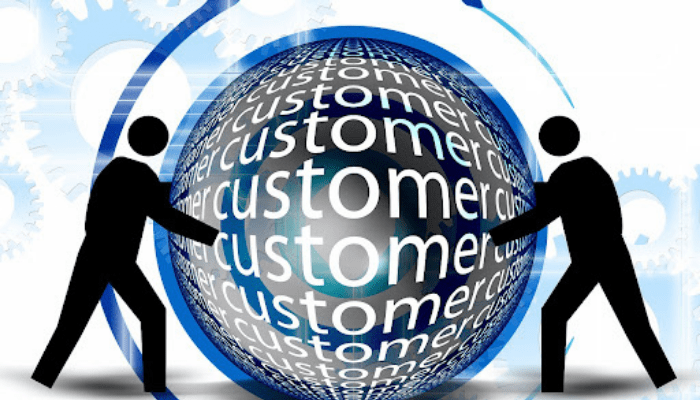When we talk of customer defection rate, this speaks to the rate at which existing customers leave a brand.
When I tell Nigerians that they don’t actually choose what they buy, I’m typically met with the kind of polite smile reserved for someone who’s clearly mistaken. After all, we’re rational beings making deliberate decisions, aren’t we? Yet beneath our confidence lies a fascinating truth, the most powerful forces shaping our purchasing decisions operate quietly below our conscious awareness.
A good example is what happened with Guaranty Trust Bank (GTBank) when they launched their GTBank Fashion Weekend and Food and Drink Festival. On paper, these initiatives had little to do with banking services, yet it transformed customer perception and drove significant account growth. What propelled this success was not lower interest rates or new banking features but how these events tapped into something quintessentially Nigerian, which is our desire for community experiences and cultural relevance. The bank understood that banking in Nigeria isn’t just about transactions but about belonging to a community.
This is not an isolated phenomenon. Across markets, categories, and demographics, Nigerian consumers consistently demonstrate patterns of behaviour that defy conventional economic logic but make perfect sense when viewed through the lens of emotional triggers—specific psychological buttons that, when pressed, bypass rational decision-making processes entirely.
The Community Validation Effect
Walk through any market in Nigeria and listen carefully. What you will hear isn’t just commerce but conversation—people discussing their purchases, seeking opinions, referencing what others have bought. These are not just mere interactions; it’s a fundamental decision-making mechanism I call the “Community Validation Effect.”
For Nigerians, a purchase isn’t merely a transaction but a social signal. We’re not simply buying products; we’re making statements about our place in the community. Local companies that understand this flourish by creating purchase experiences that confer social currency, while foreign brands often falter by emphasizing individual benefits over collective validation.
Dangote Cement didn’t become the market leader solely through quality or price advantages. Their masterful community-based marketing ensured that choosing their product became associated with supporting Nigeria’s progress and development. When consumers select Dangote over alternatives, they’re not just buying cement; they’re visibly aligning themselves with national growth and prosperity—a powerful emotional driver that transcends the product’s functional benefits.
Read also: How to stop attracting the wrong customers
The Resilience Premium
Nigerian consumers pay a premium for products they perceive as durable—not just physically robust but adaptable to Nigeria’s unique challenges. This is not just practical; it’s emotional. Products that accommodate our unpredictable infrastructure and economic fluctuations don’t just solve problems; they alleviate uncertainty and anxiety.
The enduring success of Nokia phones in Nigeria, especially in areas with electricity challenges, exemplifies this phenomenon. While smartphones eventually gained dominance in urban centers, Nokia’s reputation for battery longevity and durability created emotional loyalty that persisted far longer than market analysts predicted. They were not just buying communication devices; they were purchasing peace of mind—the comfort of knowing our phones wouldn’t die during crucial moments when power wasn’t available.
This resilience premium explains why certain seemingly inferior products outperform technically superior alternatives. Nigerians are not miscalculating value; we are calculating a different kind of value altogether.
The Respect Recognition Factor
Perhaps the most powerful unconscious driver of Nigerian consumer behaviour is what I term the “Respect Recognition Factor.” It operates below verbal articulation but influences nearly every transaction: Does this purchase or interaction confer or diminish respect?
Brands that accidentally signal disrespect—through packaging that appears cheap compared to international standards, service experiences that feel second-rate, or marketing that seems to talk down—activate immediate rejection that overrides all rational benefits.
The success of premium alcohol brands in Nigeria’s celebration culture illustrates this principle perfectly. When Nigerians choose Hennessy or Moët & Chandon for celebrations despite their premium pricing, they’re not merely selecting beverages but investing in visible symbols that confer status and respect. In a culture where respect is often communicated through visible signals, these consumption choices provide emotional value that exceeds the literal price premium.
The Future-Proof Investment Mentality
Nigerian consumer choices frequently reflect what I call “Future-Proof Investment Mentality.” It’s not about today’s utility but tomorrow’s possibilities. Products that signal potential for adaptation to unknown future circumstances carry emotional weight that market research often misses.
This explains why products like DSTV, despite premium pricing compared to alternatives, maintained strong market positions. Consumers weren’t just paying for current entertainment but investing in a system they believed would continue delivering valuable content as their tastes and circumstances evolved. The emotional security of betting on a future-proof choice outweighed immediate cost concerns.
This also explains the seemingly paradoxical behavior where financially constrained consumers bypass affordable options for premium alternatives that stretch their budgets. They’re not being financially irresponsible; they’re making emotional investments in future-proofing, choosing items that can weather changing circumstances and maintain value across time.
Activating the Hidden Triggers
Understanding these emotional triggers carries profound implications for businesses operating in Nigeria. True market leadership comes not from manipulating these triggers but from genuinely addressing the legitimate emotional needs they represent.
Companies that succeed recognize that brand loyalty in Nigeria isn’t purchased with flashy campaigns but earned through demonstrating authentic understanding of these deeper currents. When Indomie became Nigeria’s noodle of choice, it wasn’t through superior ingredients but through marketing that honored family bonds and resilience during tough times—emotional messaging that mirrored our actual values rather than imported marketing templates.
The next time you make a purchase—whether it’s selecting which bank to trust with your money or which brand of rice to bring home—pause to consider what’s really driving your choice. The answer might reveal not just something about the product but something profound about our collective psychology as Nigerians.
In a marketplace increasingly crowded with options, the companies that will thrive will not be those with the biggest advertising budgets but those with the deepest understanding of what truly moves us—not as consumers but as humans navigating the complex emotional terrain of Nigerian life.

